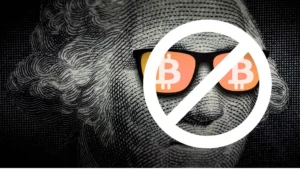This is a popular question among our crypto investor Turkish Citizenship by Investment clients. They are the ones who care a lot about their privacy and want to separate their funds into different passports and names.
In our previous article here and its 2023 version here, we have explained the crypto vs. Turkey relationship. Until 16th of April, Turkey showed a neutral and almost friendly approach towards the subject. However, Central Bank of the Republic of Turkey (“TCMB”) has published its first official legal document regarding the topic. Regulation on Non-Usage of the Crypto Assets in Payments (“Regulation”) was published in Official Gazette on 16th April 2021.
With this Regulation, it is no longer possible to use crypto assets in payments. But is it really enforceable? Is only a regulation issued by the Central Bank enough to ban every trade and transaction? Before diving too deep let us explain what “crypto assets” mean.
WHAT IS THE DEFINITION OF CRYPTO ASSETS?
“Crypto assets” term entered to Turkish legal system with this new Regulation. It means “intangible assets that are digitally issued with the distributed ledger technology or other similar technologies, which are distributed via digital networks, but not qualified as fiat money, deposit money, electronic currency, payment instrument, securities or capital market instrument”.
As can be understood from the definition, regulation does not define what crypto assets are. However, it focuses on clarifying what it’s not. Certainly, this definition is in line with FATF’s (Financial Action Task Force) definition of virtual assets.
WHAT IS NEW IN THIS REGULATION?
Reading the Regulation itself brings up many questions, due to its references to other laws. For the English translation of the regulation itself, you can simply click here. For a brief explanation of the Regulation, you can just keep reading or watch the video.
Regulation states that crypto assets can’t be used in payment services of “Payment Service Providers”. Similarly, they can’t be used while issuing electronic currencies by Payment Service Providers. Furthermore, “Payment Service Providers” can not develop businesses that directly or indirectly use crypto assets in those services.
Who are the Payment Service Providers?
- Banks
- Electronic Currency Institutions (Payzee, Hepsipay, İyzico, Papara, TurkPara, etc. You can click here for the detailed list of active electronic currency institutions.)
- Payment Institutions (İstPay, MoneyGram, PayU, WesternUnion, etc. You can click here for the detailed list of active payment institutions)
- PTT (Post office department)
According to the Regulation, “Payment Institutions” and “Electronic Currency Institutions” can’t intermediate to crypto exchange platforms. In other words, they can’t intermediate to platforms that provide purchasing, selling, depositing, transferring, or issuing of crypto asset services. Likewise, they can’t intermediate on the transfer of funds at such platforms. This means that only banks and PTT can intermediate on transactions at crypto exchange platforms.
In short, if you want to transfer funds to exchange platforms such as BTC Turk or Paribu, you have to use a bank. You can not transfer your funds via Papara, Ininial, etc. But other than that, this regulation does not have a direct effect on companies, merchants, or individuals.
Central Bank’s Scope of Authority
This regulation does not mean that no one can request Bitcoin or other crypto assets in return for a good or service. At this point, we understand that, when you want to buy stuff, government wants you to use fiat currency.
On the other hand, regulation of Central Bank, can not interfere with businesses of other companies, self-employed individuals, or merchants. Central Bank, does not have the authority to tell all merchants, companies, or individuals to not accept Bitcoin as payment. To clarify, Central Bank can not limit legal or real persons, other than banks, payment institutions, electronic money institutions, or PTT. In short, if two people agree upon a payment and service trade in Bitcoin, Central Bank can not interfere.
WHEN DOES this so-called “CRYPTO ASSET BAN” BEGINS?
As of 30/04/2021 this regulation will be in force. However, regulation does not state the legal sanctions for breaking the provisions.
WHAT TO UNDERSTAND FROM THIS REGULATION?
- Crypto assets are not money.
- Payment and Electronic Money Institutions can not intermediate to fund transfers to crypto exchange platforms.
- Banks, PTT, MoneyGram, Western Union, İyzico, Papara, and other Payment Service Providers cannot develop business structures that use crypto assets.
- Banks can intermediate on cryptocurrency exchange platforms or any transactions over such platforms.
- Regulation does not ban trading in crypto exchange platforms.
- It is not a ban on crypto assets. Individuals can still agree on payments in Bitcoin since this regulation does not have the authority to ban.
- Anyone who wishes to withdraw or deposit fiat currency through an exchange platform is obliged to use a bank or the Turkish postal office.

Related Videos
Related Articles
We are always happy to hear from you!
E-mail:
info@turkfortune.com
Phone:
+90(546) 577 73 18
Addresses:
Büyükdere Cad, Mecidiyeköy Mah. No:81 Kuğu İş Merkezi Floor:4 No:7, Şişli/İSTANBUL
Mansuroğlu Mah. 286/1 Sk. No:1 Floor: 2 Office: 217 Bayraklı/İZMİR


















